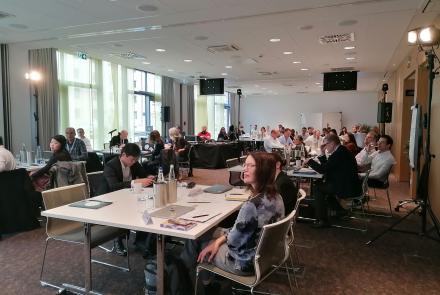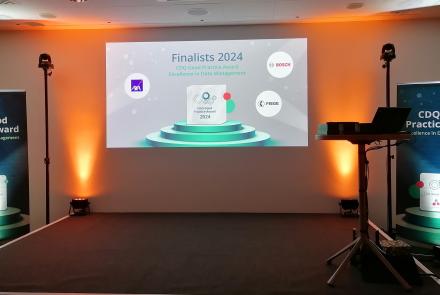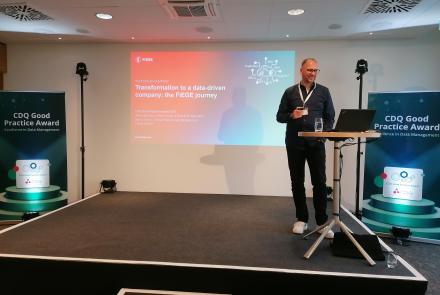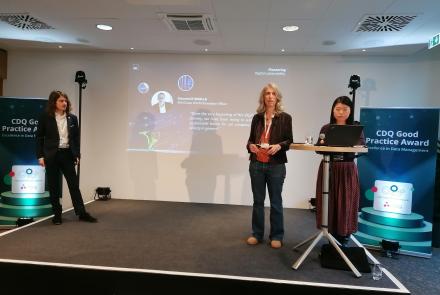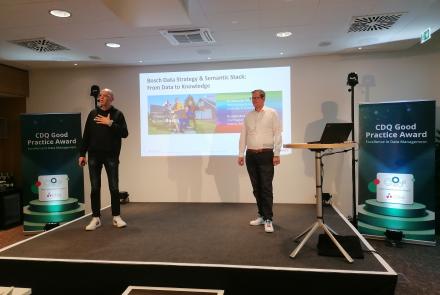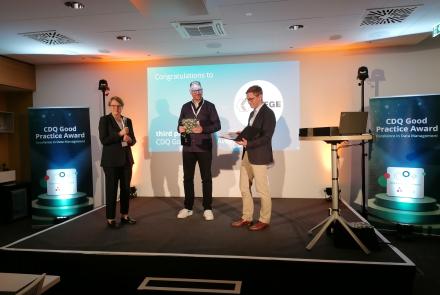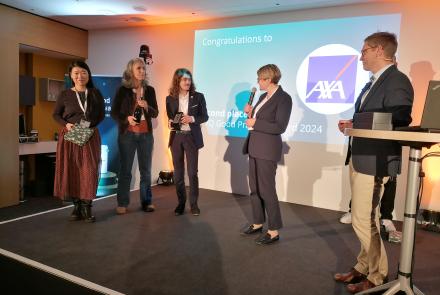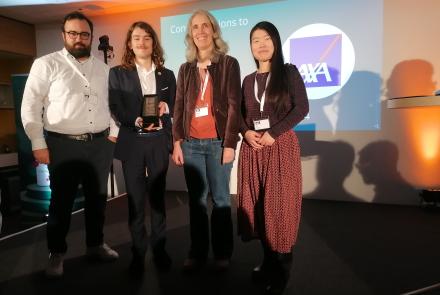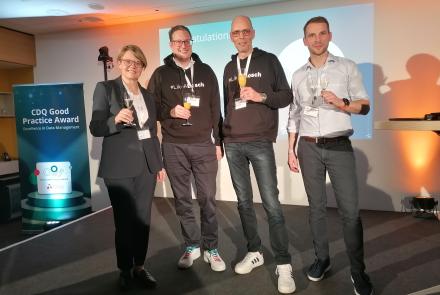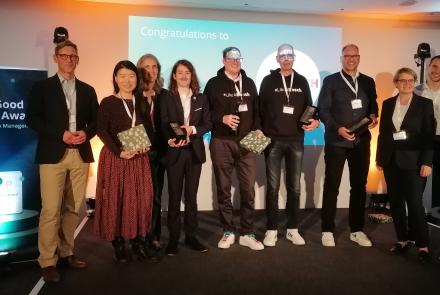AXA, Bosch and Fiege have made it into the final round!
End of November, we held the CDQ Good Practice Award 2024 finals in Munich.
Congratualations go to all three finalists for their achievements and for inspiring data managers. They demonstrated exceptional innovation, data excellence, and business value in their submissions:
- AXA for their "Carbon emissions monitoring for sustainable IT management" case.
- Bosch for their "Data strategy & semantic stack: from data to knowledge" initiave.
- FIEGE for their "Transformation to a data-driven company: the FIEGE journey".
At the end, Bosch won, AXA achieved second place, and Fiege third.
We would like to thank our Award jury members from around the world for their thoughtful reviews and detailed feedbacks to the many submissions: Christine Legner, Ismael Caballero, C. Lwanga Yonke, Geert Opdenbosch, and Andy Koronios
Thank you to all participants for submitting their excellent entries and for the time and effort they put into preparing their submissions!
We are already looking forward to a new edition of the CDQ Good Practice Award 2025.
>> Stay in the data excellence loop: follow us on LinkedIn!
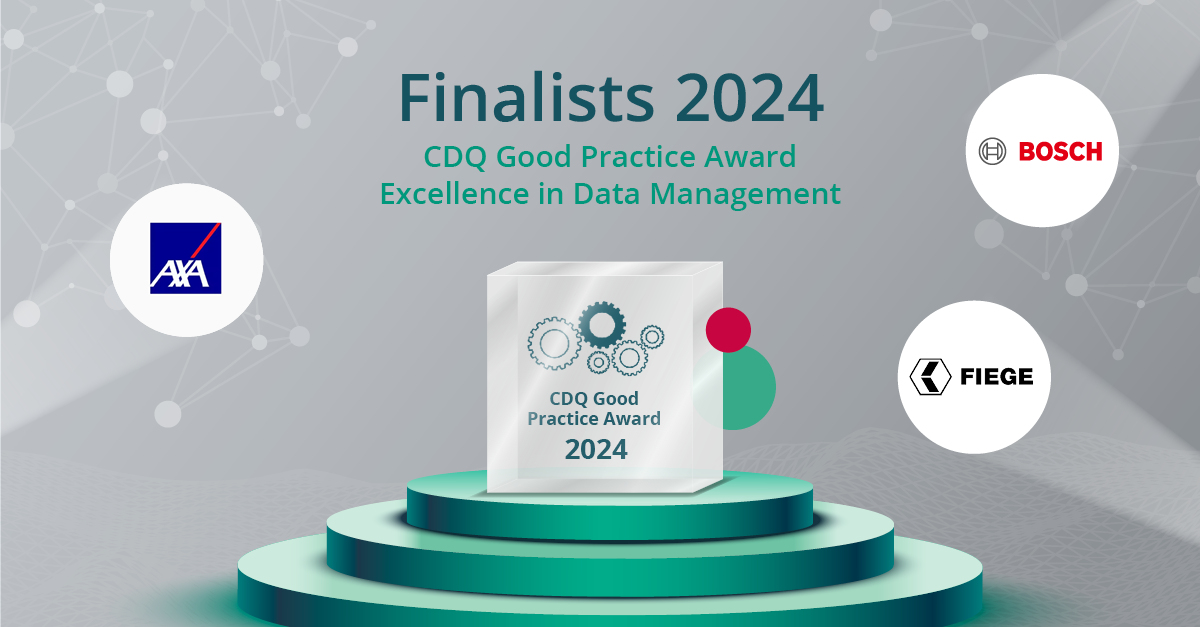
Carbon emissions monitoring for sustainable IT management
AXA’s “Digital Sustainability” Program, launched in 2020, aims to measure and reduce the carbon footprint of its digital activities. As the first financial company to publicly disclose ICT environmental impact in its ESG report, AXA tracks emissions from end-user devices, data centers, and cloud services, with support from its global CIO network.
The program aims at integrating automated, end-to-end monitoring to meet regulatory standards like the new ESRS and adapt to technologies like Generative AI. Key goals include improving data quality, establishing efficient data collection, and delivering IT emissions dashboards across AXA entities, all within AXA’s ESG and financial reporting framework.
Data strategy & semantic stack: from data to knowledge
Bosch is enhancing competitiveness and innovation with a data strategy focused on six areas: Data-Driven Business, Data Governance, Analytics & AI, Security, Data Culture, and Ethics. This strategy boosts data transparency, democratizes access, and treats “data as an asset”.
A key part of this approach is creating data domains that align with Bosch's organizational structure, ensuring consistent terminology and streamlined data flow across the company.
With W3C-linked data standards, Bosch’s Semantic Stack enables standardized, interoperable data management, fueling AI initiatives through reusable modules. A key example is DigitalCV, which unifies product data to improve quality monitoring, traceability, and issue resolution—achieving cost savings and faster insights.
Transformation to a data-driven company: the FIEGE journey
Over the past three years, Fiege has transformed into a data-driven company by building a cloud-native data fabric to deliver scalable data products and self-service BI/AI. The company integrated a robust data governance and quality framework, established a rapid data simulation approach, and shifted their focus from isolated data projects to standardized data products for both internal and external customers.
Their journey includes implementing a hub-and-spoke model and forming agile, cross-functional data product teams. Fiege also built active communities, such as data governance groups and data analyst networks, to foster collaboration. This transformation was guided by a comprehensive data and AI strategy, driving Fiege's success as a data-centric organization.
Award for outstanding data management initiatives
The CDQ Good Practice Award acknowledges world-class and innovative data management initiatives paving the way for digital and data-driven enterprises. The award is an initiative of the Competence Center Corporate Data Quality (CC CDQ) and the European Foundation for Quality Management (EFQM), supported by a global jury of international data experts from practice and academia.
